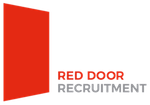What questions should I ask in an interview?
Asking the right questions at an interview is important for two reasons: First, when done correctly, the questions you ask can confirm you are a qualified candidate for the position. Second, you are interviewing the employer just as much as the employer is interviewing you. This is your opportunity to find out if this is an organisation where you want to work.
Many job seekers focus so hard on interview questions that they forget something very important: You are there to ask questions, too!
3 Things You Want to Achieve
When you ask the right questions, you want to achieve three things:
Make sure the interviewer has no reservations about you.
Demonstrate your interest in the employer.
Find out if you feel the employer is the right fit for you.
There are an infinite number of questions you could ask during a job interview, but if you stay focused on those three goals, the questions should come easy to you.
We recommend preparing three to five questions for each interview, and actually ask three of them. (It is best to have more prepared than is needed because some of my questions might be answered in the course of the interview.)
Here are some interview questions you could ask, and why:
1. What skills and experiences would make an ideal candidate? This is a great open-ended question that will have the interviewer put his or her cards on the table and state exactly what the employer is looking for. If the interviewer mentions something you didn’t cover yet, now is your chance.
2. What is the top priority for the person in this position over the next three months? This question is helpful so you know what to focus on if you do get the position. Without a clear expectation, you won't know what to accomplish or how to make the right impression during your first days on the job.
3. What have you enjoyed most about working here? This question allows the interviewer to connect with you on a more personal level, sharing his or her feelings. The answer will also give you unique insight into how satisfied people are with their jobs there. If the interviewer is pained to come up with an answer to your question, it’s a big red flag.
4. Do you offer continuing education/professional training? This is a great positioning question, showing that you are interested in expanding your knowledge and ultimately growing with the employer.
5. Can you tell me about the team I’ll be working with? Notice how the question is phrased; it assumes you will get the job. This question also tells you about the people you will interact with on a daily basis, so listen to the answer closely.
6. What can you tell me about your plans for growth? This question should be customised for your particular needs. Do your homework on the employer’s site beforehand, mention a new product or service it’s launching to demonstrate your research and interest. The answer to the question will give you a good idea of where the employer is headed.
7. What are some challenges that will face the person filling this position? You owe it to yourself to know what you're up against.
8. What have past employees done to succeed in this position? Knowing how the organization measures achievements will help you understand what the expectations will be and whether you have the skill set to meet them. But don't undermine your past accomplishments just because your route to success doesn't match up with the one embraced by the company. You also don't want to be too narrowly defined by what other people have done - you're a different person, you may approach things a little differently.
9. What are the biggest rewards of working in this position/for this company? This may be a new position giving you the potential to grow, develop and put your own stamp on it? It may be a replacement for someone who's progressing within the company? Either way, it's a good question if you're looking for job satisfaction!
10. What is the next step in the process? This is the essential last question and one you should definitely ask. It shows that you’re interested in moving along in the process and invites the interviewer to tell you how many people are in the running for the position.
Good luck and remember if your CV has been selected the interviewer has already seen potential in your experience, be confident in your abilities and don't forget, an interview is as much for you to get to know the company and find out if it's right for you as it is for them!


